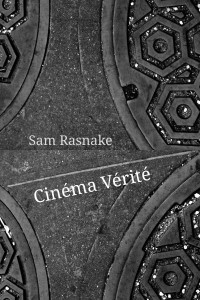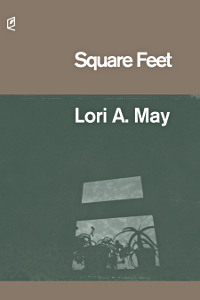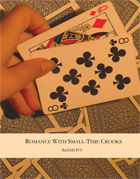
A Minor Press
86 pages, $12.95, £ 8.45, € 9.82
Review by Michelle Elvy
1. The beginning, middle, and end
When you dive into Sam Rasnake’s poetry, you give yourself over to words and worlds you’ve not touched before. I’ve read plenty of Rasnake’s words before, from online journals to his last collection, Inside a Broken Clock. He challenges and inspires, both intellectually and emotionally. And now, with his latest offering, Cinéma Vérité, I find myself caught up in his heady love affair with poetry and film, image and truth, space and silence, fragments and wholes.
I’m not a film buff like Rasnake, I admit. But the way he combines observations from and about films with observations of life, love, art, and death has me rethinking Welles, Malick, Kubrick, Godard, and Campion (and many more, from Wim Wenders to Spike Lee). He fits language and image together in a close examination of a wide selection of modern films. Here we have film reconsidered through a poet’s eye, connecting the specific to the universal. Continue reading
![[PANK]](https://pankmagazine.com/wp-content/themes/pank/assets/images/pank-logo-large.png)




